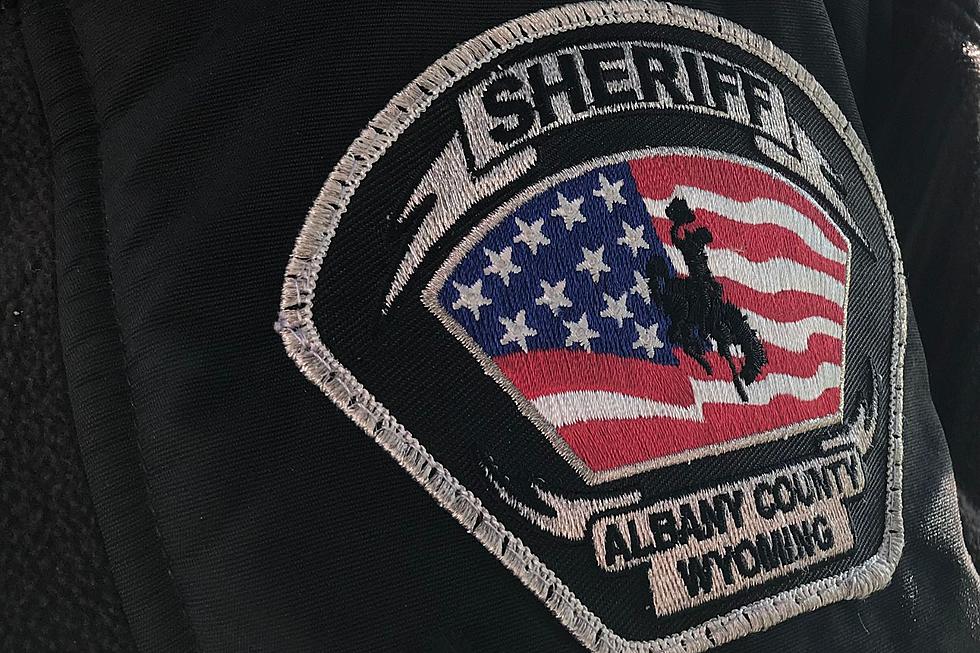
Preacher Ma’am: How Does ‘Alamo’ Hold Up Today?
As someone who thought she was a dude in the late 1990s, Preacher was the comic I looked forward to every month more than any other. As someone who knows she isn’t a dude in the mid-2010s, I’m looking back on this series and examining what still works, what doesn’t work, and what its lasting legacy is.
This week: it's all over. Garth Ennis and Steve Dillon --- with Pamela Rambo on colors, Clem Robbins doing the lettering, and Alex Alonso editing the whole deal --- set their pencils down with "Alamo," and their final word on the series asks us: who deserves salvation, who has earned damnation, and does it even make a difference in the end?
Way back in the very first volume of Preacher, Tulip asked Jesse a question:
Then what happened, was Preacher, the comic series, here at last at its end.
There’s a lot to write about in Alamo, and it could fill up two whole columns, but this is the end of Preacher, so it seems fitting to focus on the actual end of Preacher.
We came for the jokes, and for the quotes, and for Dillon’s beautiful artwork, but we stayed for the stakes, and the stakes are simultaneously lower and higher than they’ve ever been. God is about to fall, and Starr, the ruler of the world, is going down with him, but that’s taken a back seat to a very personal struggle: Jesse’s friendship with Cassidy is broken beyond repair, as Jesse is determined to rain condemnation and judgement down upon the no longer charming, no longer lovable Irish vampire. The villains form a trinity, like the heroes were supposed to, before the story took a turn on us.
But really, the story never took a turn. It was always about forgiveness. God granted it, desperate to be loved by others; Cassidy fed on it, so he could keep loving himself. The biggest surprise about Cassidy proposing a deal to God is that it took him this long to try it --- they were made for each other.
In their final confrontation, Jesse goes in knowing with faithful conviction that he’s going to die no matter what, and Cassidy goes in knowing he’s going to live no matter what, and it colors everything they do --- but in unexpected ways. With the belief that he won’t face his actions, Jesse keeps Tulip out of the loop, even drugging her water…
… an uncomfortable parallel if there ever was one. He knows exactly how much his loss will devastate her, and he still doesn’t tell her what he plans to do. He lies, the thing that Jesse hates to do most of all, the thing he hates in Cassidy so much, and it nearly is his undoing. Without there ever being a “We are not so different, you and I” moment, the comparison to Cassidy is still clear.
Cassidy, by contrast, is not freed by the knowledge he’s going to live no matter what --- he appears trapped by it, because only now that all of his sins have caught up with him has he seen just how many of them there are, and he’s coming face to face with what damnation truly is --- it’s forever.
Eternity is beyond human comprehension, and Cassidy, as a vampire, could wind up confronting it anyways. Days beyond counting, his consciousness persisting no matter what, and for Cassidy, if he persists, his sins persist with him, even after everyone he’s wronged is long dead and beyond pain. And this is as much of an enabler as all the other enablers in Cassidy’s life; if you’re damned no matter what, what incentive is there to be anything but a monster?
That Cassidy is a monster is pretty much taken as fact at this stage; what he did to Tulip would be enough, but that this is nothing more than the latest manifestation of a pattern going back a hundred years seals the deal. Cassidy is a bad, bad person. It’s clear as day.
But what do you do with him?
Cut him out of your life? Tempting, but ultimately irresponsible; he’ll just go and hurt someone else. Put him in prison? Even if the world of Preacher wasn’t fundamentally corrupt, even if you could find a jail to hold him, unless you plan on leaving him there forever, he’s going to come back out and not have learned a thing.
Preacher takes the position that eternal life is incompatible with human morality; that so much of what drives us to be moral is gone the moment mortality is; that to live forever means to eventually turn into Cassidy, or into God.
Kill him? Jesse balks at that. In the end, he doesn’t want Cassidy to die. He wants Cassidy hurt, which is more for Jesse’s benefit than Cassidy’s; if Jesse were a little more introspective, he’d have to admit that if Cassidy learned any kind of lesson from being beat down by someone else, then what does that say about Jesse and Jody, and what Jesse learned from Jody?
Without those options, you'd think that what’s left is forgiveness, which is what God’s all about: love Him, and all sins are washed away. No muss, no fuss. God’s forgiveness is absolute; his conditions are equally absolute; and the unspoken notion of God’s unconditional forgiveness is that it is the only true forgiveness; the easy, reliable way towards absolution.
Real forgiveness --- human forgiveness --- is hard. It’s difficult, and more than anything, it’s conditional. It depends on the sin; it depends on the sinner; it depends on the person doing the forgiving. Real forgiveness is as diverse as the human condition, and Preacher’s last message is twofold; that human forgiveness is the only forgiveness we have to give and to receive, and that whether or not we receive it, we must do better regardless.
I don’t think I could forgive Cassidy. I don’t think Jesse ever truly did either. Cassidy specifically says “it’s quite another thing to forgive me,” implying that forgiveness is not why Jesse took Cassidy’s hand in the end, and he doesn’t even dare to ask it of Tulip --- who is really the wronged party --- having at least enough self-awareness to recognize how obscene that would be.
What Jesse does is something different; he doesn’t explicitly forgive Cassidy. Him reaching out to Cassidy is him telling Cassidy he has to be better regardless of whether he’s forgiven.
“All you ever had to be was act like a man” --- which to Jesse, means, be a better man. Jesse’s last message to Cassidy is: forget about forgiveness. You may get it, you may not, but whether you receive it or not, you are still obligated to be a decent person --- something that Jesse himself has just recently failed at being.
Just like Cassidy is obligated to be better, so is Jesse. It’s significant that not only is Jesse moved to tears for the first time by the thought of losing Tulip, but that this happens before she says yes; regardless of whether she forgives him, it’s something he has to do, a step he has to take in order to be a better man.
She does forgive him, because at its heart, Preacher is a romantic look at the world, a world where good can triumph over evil and the heroes can ride off into the sunset and, in the end, love can conquer all.
The last panel of the series is a newly mortal Cassidy, having conned a second chance out of God and gleaned a purpose for it from Jesse, taping an iconic photograph to his rear-view mirror, a look at the myth of Preacher that’s as illuminating as Preacher’s look at the myth of America. The moment in the photo, of three friends all happy and content and flush with fresh heroism and success, was only an illusion --- there were dark times coming, and in Cassidy’s case, darkness leading all the way up to it. As Gunther would say, under harsh light, it is false --- much like the myth of America. It’s a mirage.
But it’s a mirage that should point the way to better, even if too often it leads us astray, as mirages so often can, as fiction so often does. The moment on Cassidy’s mirror, where everything was just the way it should be, is Preacher how I remembered it when I started this series --- all flaws out of frame, and just the nice remembrance of things past to show for it.
It’s how I remember it at the end --- the flaws still there, the rough patches still around, but we don’t carry pictures of those moments forward with us. The wisdom of age has brought me a new perspective on what in Preacher is worth keeping around, which is a good thing --- how terrifying would it be if we never changed?
This, then, is the end of this column. Special thanks to Greg Black, Tom Foss, David Lebovitz, Ken Lowery, and so many others for the great discussions these past few months. It’s time to put Preacher back on the shelf, at least until DC puts together a sequel and then integrates the Preacher characters into the DC Universe and we get Jesse Custer joining the Justice League Dark while Tulip becomes the new Batgirl.
Well, I just ended this column with a mental image we’ll never, ever be rid of. But honestly, Garth Ennis and Steve Dillon wouldn’t have had it any other way. So long, friends.
More From Laramie Live










